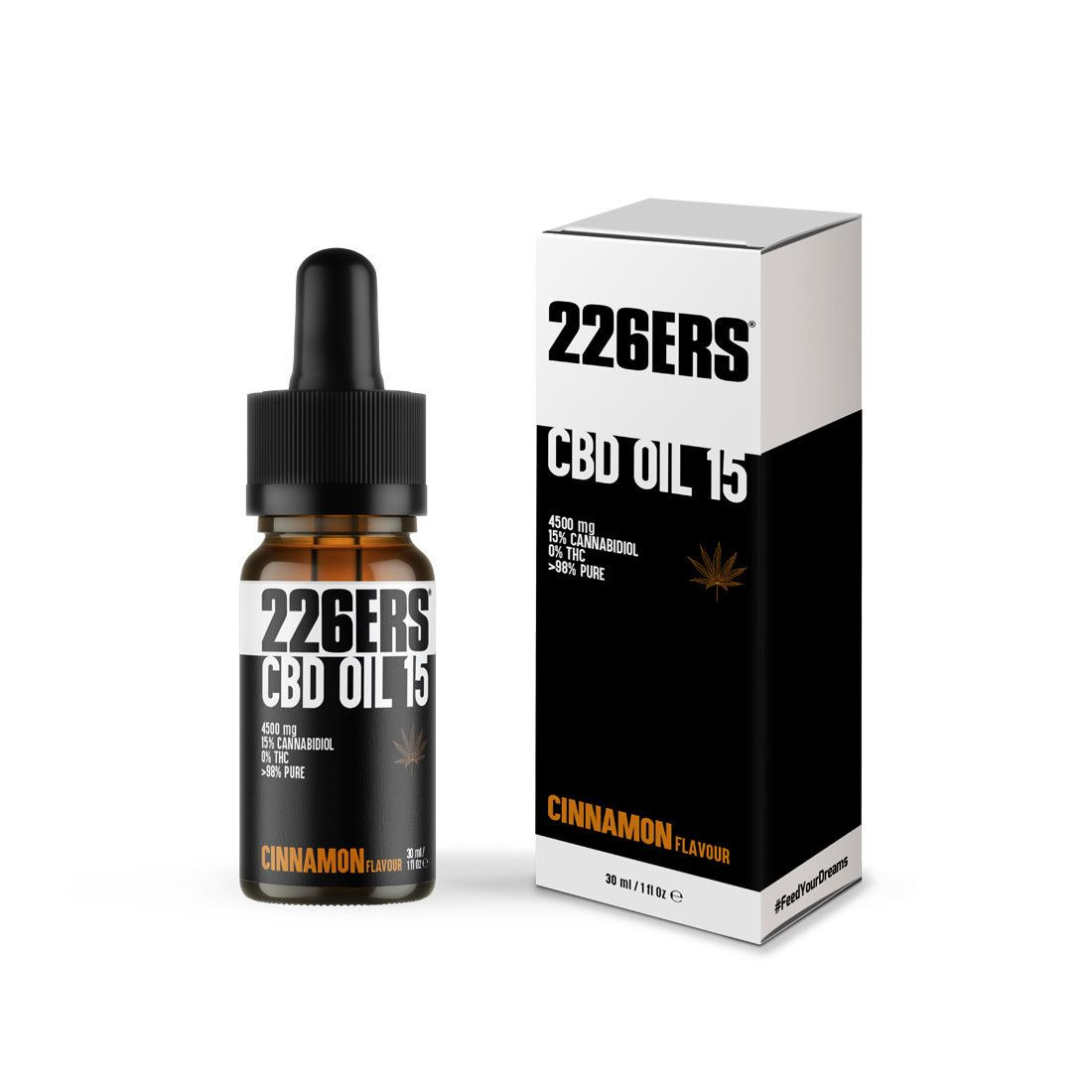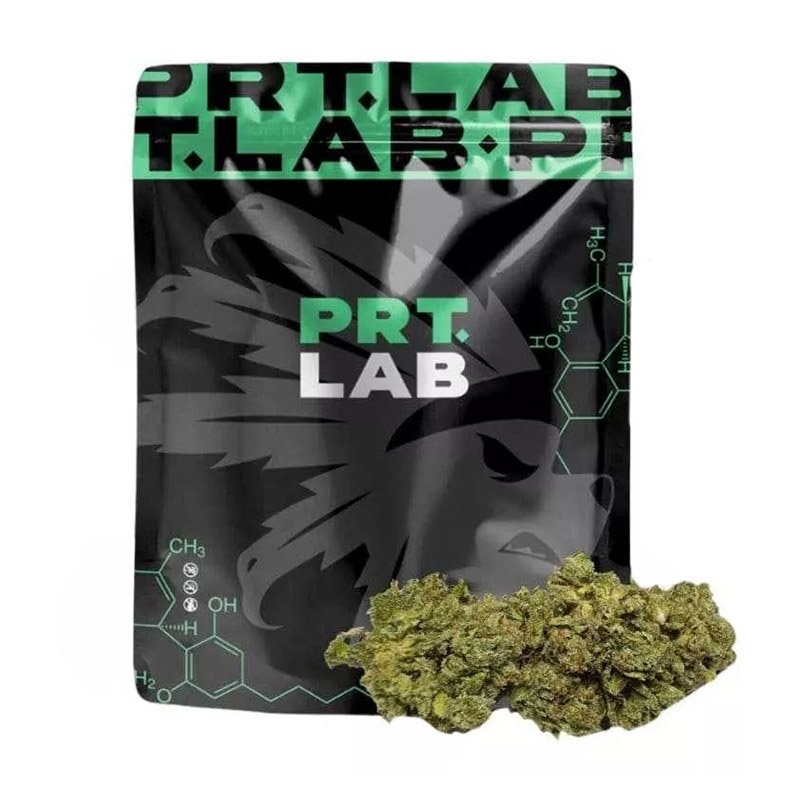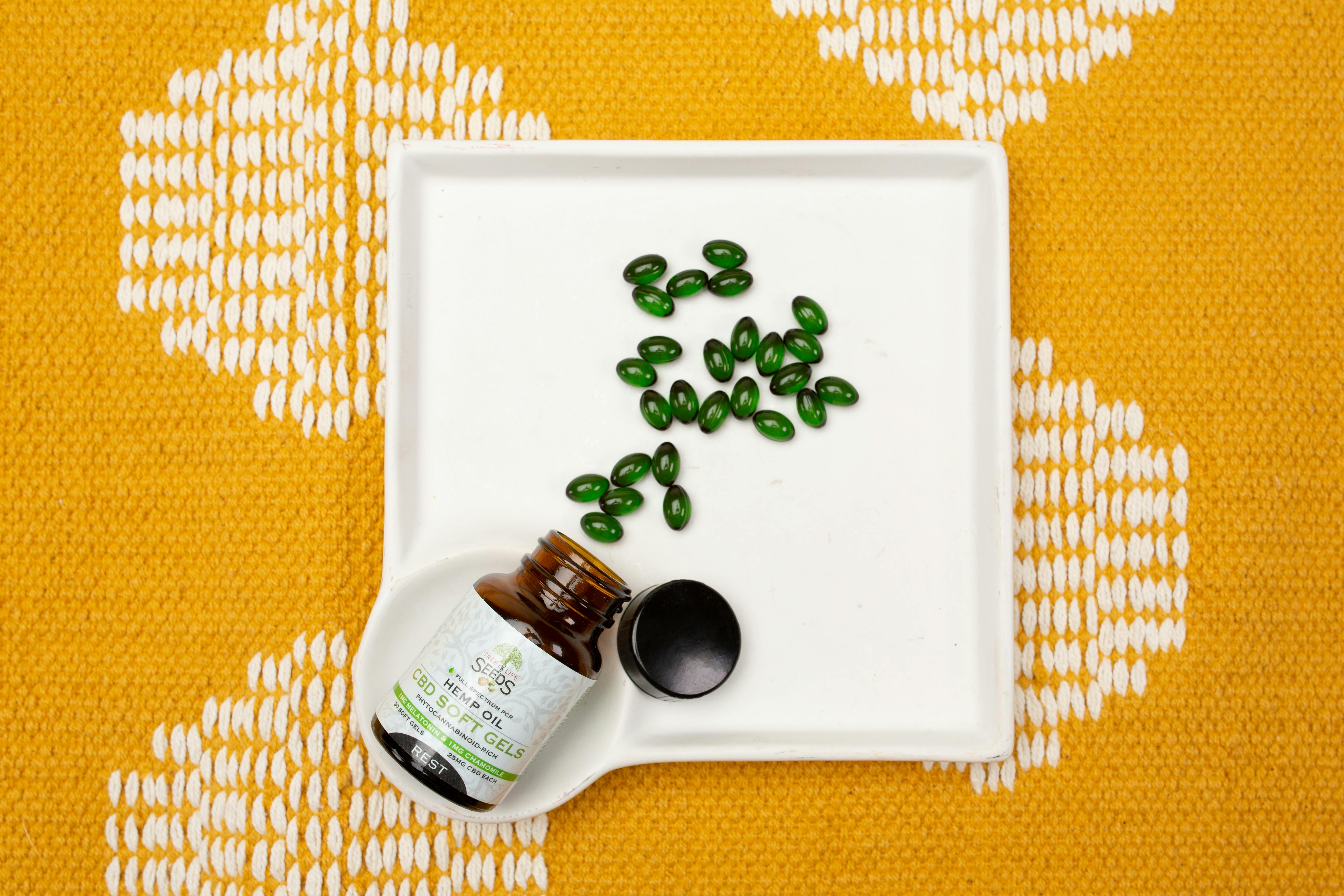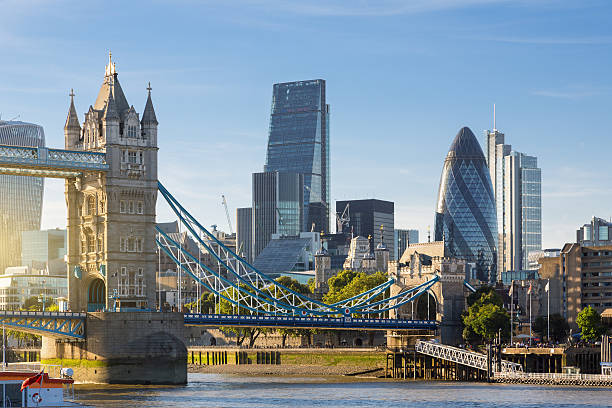
For example, one study found that only 31% of CBD products were accurately labeled; 43% contained more CBD than indicated on the label and 26% contained less than was indicated on the label. Moreover, THC (the main active component in marijuana) was found in 21% of the products. The only use of CBD generally recognized as safe and effective is treatment of certain seizure disorders. Three studies have shown that a pure CBD product, available by prescription only, reduces seizures in adults and children with 2 rare forms of epilepsy. In these studies, people were treated with the CBD product for 14 weeks while they continued to take other antiseizure medications. The CBD treatment decreased the numbers of seizures and reduced their frequency and severity. Research on other health claims for CBD include studies in people that have been small and/or of poor quality. In a small study, CBD seemed to reduce symptoms of anxiety and craving in abstinent people with heroin use disorder.
Another small study found that in people treated with antipsychotic medications for schizophrenia, CBD reduced symptoms of psychosis. Several retrospective and observational studies suggest that CBD might have beneficial effects in certain conditions, including pain, anxiety, sleep problems, and colitis. But other evidence suggests that these benefits are modest, at best, and these studies have important limitations (for example, inconsistent results for different studies, no comparison with a placebo). A mouth spray containing CBD may help treat spasticity in multiple sclerosis. CBD is probably safe to take by mouth or sprayed under the tongue. But CBD can have side effects, such as dry mouth, low blood pressure, diarrhea, decreased appetite, mood changes, light-headedness, and sleepiness. CBD can injure the liver, especially if it is not used under medical supervision. The contaminants in some CBD products could harm fetuses or infants, so CBD might not be safe for women who are pregnant or breastfeeding. People with liver disease who use CBD might need to take lower doses than healthy people.
High doses of CBD might make tremors and other unwanted movements worse in people with Parkinson disease. In studies in animals, CBD decreased sperm growth and development and reduced testicle size, so it might affect fertility in men. Some CBD products are contaminated with solvents, including some that can cause cancer, as well as pesticides, heavy metals, bacteria, and fungi. Some of these contaminants could be harmful to a fetus. CBD could speed up or slow down the body’s breakdown of certain medications and, therefore, decrease or increase levels of these medications in the body. Sedatives, such as benzodiazepines, phenobarbital, and morphine, as well as alcohol: CBD can cause sleepiness and drowsiness, so taking both CBD and sedatives might make people too drowsy.Sedatives, such as benzodiazepines, phenobarbital, and morphine, as well as alcohol: CBD can cause sleepiness and drowsiness, so taking both CBD and sedatives might make people too drowsy. Phenytoin and rifampin: may lower the levels of CBD.Phenytoin and rifampin: may lower the levels of CBD.
Levothyroxine, warfarin, and some antiseizure medications: CBD may increase blood levels of these medications, thereby intensifying and increasing their effects.Levothyroxine, warfarin, and some antiseizure medications: CBD may increase blood levels of these medications, thereby intensifying and increasing their effects. Valproic acid: Both valproic acid and CBD can cause liver injury, so the combination of CBD and valproic acid might increase the chance of liver injury.Valproic acid: Both valproic acid and CBD can cause liver injury, so the combination of CBD and valproic acid might increase the chance of liver injury. A pure CBD product, available by prescription only, reduces the number of seizures as well as their severity and frequency in adults and children taking other antiseizure medications for one of 2 rare forms of epilepsy. Other effects of CBD have not been confirmed in high-quality studies in people. CBD can have side effects, such as dry mouth, low blood pressure, diarrhea, decreased appetite, mood changes, light-headedness, and sleepiness. However, serious side effects are rare, and CBD is probably safe for most people. Pregnant and breastfeeding women and people with liver disease, Parkinson disease, and men who want to have children should not take CBD. Taking CBD while taking other medications that can cause drowsiness or while drinking alcohol can cause extreme drowsiness, which could be dangerous. People who take medications (including sedatives, antiseizure medications, some antidepressants, valproic acid, and medications to prevent the rejection of transplanted organs) should talk to their doctor before taking CBD.People who take medications (including sedatives, antiseizure medications, some antidepressants, valproic acid, and medications to prevent the rejection of transplanted organs) should talk to their doctor before taking CBD. The regulations about CBD are complicated and confusing. The following English-language resource may be useful. Please note that The Manual is not responsible for the content of this resource.



 If you’re dipping your toes into the infused beverage space, these businesses can help you get started. As cannabis regulation continues to evolve across the United States and around the world, please be mindful of your local laws and regulations. Alcoholism runs deep in both sides of my family. To prevent possibly continuing those patterns as I get older, I’ve become more interested in exploring other options for social drinking; Alcohol-free wines and spirits have become significantly more accessible in recent years, and cannabis-based mocktails is one of the most interesting trends in this space. Picture a zero-proof drink with all the layers of flavor we’ve come to love in a cocktail, but with a THC and/or CBD mixture that can be customized for the exact high you’d like to experience. While this trend is spreading, conversations around race and cannabis need to remain at the forefront of this movement.
If you’re dipping your toes into the infused beverage space, these businesses can help you get started. As cannabis regulation continues to evolve across the United States and around the world, please be mindful of your local laws and regulations. Alcoholism runs deep in both sides of my family. To prevent possibly continuing those patterns as I get older, I’ve become more interested in exploring other options for social drinking; Alcohol-free wines and spirits have become significantly more accessible in recent years, and cannabis-based mocktails is one of the most interesting trends in this space. Picture a zero-proof drink with all the layers of flavor we’ve come to love in a cocktail, but with a THC and/or CBD mixture that can be customized for the exact high you’d like to experience. While this trend is spreading, conversations around race and cannabis need to remain at the forefront of this movement.
 CBD vs. THC: What’s the Difference Between the Two? CBD is just one of over 100 cannabinoids found in cannabis plants. It’s also the second major active compound besides THC. Consumers are getting more interested in the differences between CBD vs. THC. There’s a large group of users who combine these two molecules to maximize the effects of their cannabis extracts. CBD and THC have a similar molecular structure to the cannabinoids produced naturally in your body by the endocannabinoid system. This guide covers all-important differences between CBD vs. THC, explaining their benefits, uses, safety profile, legal status, and more. We’ll also discuss the mechanisms both cannabinoids use to regulate essential processes in your body. CBD and THC have almost identical chemical makeup. They consist of 30 hydrogen atoms, 21 carbon atoms, and 2 oxygen atoms. That being said, these atoms are arranged differently, which means CBD and THC ultimately have different qualities. CBD is the acronym for cannabidiol, a non-intoxicating cannabinoid synthesized by cannabis plants.
CBD vs. THC: What’s the Difference Between the Two? CBD is just one of over 100 cannabinoids found in cannabis plants. It’s also the second major active compound besides THC. Consumers are getting more interested in the differences between CBD vs. THC. There’s a large group of users who combine these two molecules to maximize the effects of their cannabis extracts. CBD and THC have a similar molecular structure to the cannabinoids produced naturally in your body by the endocannabinoid system. This guide covers all-important differences between CBD vs. THC, explaining their benefits, uses, safety profile, legal status, and more. We’ll also discuss the mechanisms both cannabinoids use to regulate essential processes in your body. CBD and THC have almost identical chemical makeup. They consist of 30 hydrogen atoms, 21 carbon atoms, and 2 oxygen atoms. That being said, these atoms are arranged differently, which means CBD and THC ultimately have different qualities. CBD is the acronym for cannabidiol, a non-intoxicating cannabinoid synthesized by cannabis plants.
 From infusion ovens and face oils, to bath bombs and gummies, these women-led companies have taken the CBD industry to new heights. This month and every month of the year, women working across every step of the supply chain are busy keeping the CBD scene interesting, inviting and effective. Although there remains plenty of discrepancy between the number of male and female-founded businesses in cannabis and hemp, there are a number of influential companies owned and operated by women that are changing the landscape of the industry at large. These are trendsetters; trailblazers-people who brought fresh, smart ideas to a male-dominated space and executed them without dimming their feminine perspectives. Women who not only saw blank space for products yet to be made and problems yet to be solved, but who also held the door open for other entrepreneurs following in their footsteps. Here are a few of our favorite innovations in CBD from the minds and manufacturing facilities of women, as well as the unique origin stories that brought them to life.
From infusion ovens and face oils, to bath bombs and gummies, these women-led companies have taken the CBD industry to new heights. This month and every month of the year, women working across every step of the supply chain are busy keeping the CBD scene interesting, inviting and effective. Although there remains plenty of discrepancy between the number of male and female-founded businesses in cannabis and hemp, there are a number of influential companies owned and operated by women that are changing the landscape of the industry at large. These are trendsetters; trailblazers-people who brought fresh, smart ideas to a male-dominated space and executed them without dimming their feminine perspectives. Women who not only saw blank space for products yet to be made and problems yet to be solved, but who also held the door open for other entrepreneurs following in their footsteps. Here are a few of our favorite innovations in CBD from the minds and manufacturing facilities of women, as well as the unique origin stories that brought them to life.
 Ten years ago, Shanel Lindsay was just another young lawyer establishing herself at a Boston firm. A lawyer with a few plants in her spare bedroom she’d turn into edibles. Lindsay had enjoyed cannabis for years, first falling for the plant when dealing with a painful ovarian cyst. But when a brush with the law proved to her how little decriminalization did to lessen cannabis stigma, she threw herself into advocacy and started innovating a subtle, easy device for people to make their own edibles at home. Ardent officially launched in 2015 with the Nova, a compact canister-shaped machine built to infuse butter or oil with up to an ounce of flower or 5 ounces of kief. The Ardent FX debuted in 2020, offering a larger, more user-friendly 1-button infusion device (with a THC/CBD setting) that you can also use to cook your final product (banana bread, spaghetti sauce-even infuse topicals).
Ten years ago, Shanel Lindsay was just another young lawyer establishing herself at a Boston firm. A lawyer with a few plants in her spare bedroom she’d turn into edibles. Lindsay had enjoyed cannabis for years, first falling for the plant when dealing with a painful ovarian cyst. But when a brush with the law proved to her how little decriminalization did to lessen cannabis stigma, she threw herself into advocacy and started innovating a subtle, easy device for people to make their own edibles at home. Ardent officially launched in 2015 with the Nova, a compact canister-shaped machine built to infuse butter or oil with up to an ounce of flower or 5 ounces of kief. The Ardent FX debuted in 2020, offering a larger, more user-friendly 1-button infusion device (with a THC/CBD setting) that you can also use to cook your final product (banana bread, spaghetti sauce-even infuse topicals). We include products we think are useful for our readers. If you buy through links on this page, we may earn a small commission. Acne is a widespread skin condition that can cause painful bumps and pimples. Cannabidiol (CBD) may help reduce inflammation and decrease the amount of sebum the skin produces,
We include products we think are useful for our readers. If you buy through links on this page, we may earn a small commission. Acne is a widespread skin condition that can cause painful bumps and pimples. Cannabidiol (CBD) may help reduce inflammation and decrease the amount of sebum the skin produces,  Medical News Today follows a strict product selection and vetting process. Shopping for CBD products can be overwhelming. Read our complete buyer’s guide here. This moisturizer is suitable for everyday use. The company states that the
Medical News Today follows a strict product selection and vetting process. Shopping for CBD products can be overwhelming. Read our complete buyer’s guide here. This moisturizer is suitable for everyday use. The company states that the 
 If you’re dipping your toes into the infused beverage space, these businesses can help you get started. As cannabis regulation continues to evolve across the United States and around the world, please be mindful of your local laws and regulations. Alcoholism runs deep in both sides of my family. To prevent possibly continuing those patterns as I get older, I’ve become more interested in exploring other options for social drinking; Alcohol-free wines and spirits have become significantly more accessible in recent years, and cannabis-based mocktails is one of the most interesting trends in this space. Picture a
If you’re dipping your toes into the infused beverage space, these businesses can help you get started. As cannabis regulation continues to evolve across the United States and around the world, please be mindful of your local laws and regulations. Alcoholism runs deep in both sides of my family. To prevent possibly continuing those patterns as I get older, I’ve become more interested in exploring other options for social drinking; Alcohol-free wines and spirits have become significantly more accessible in recent years, and cannabis-based mocktails is one of the most interesting trends in this space. Picture a